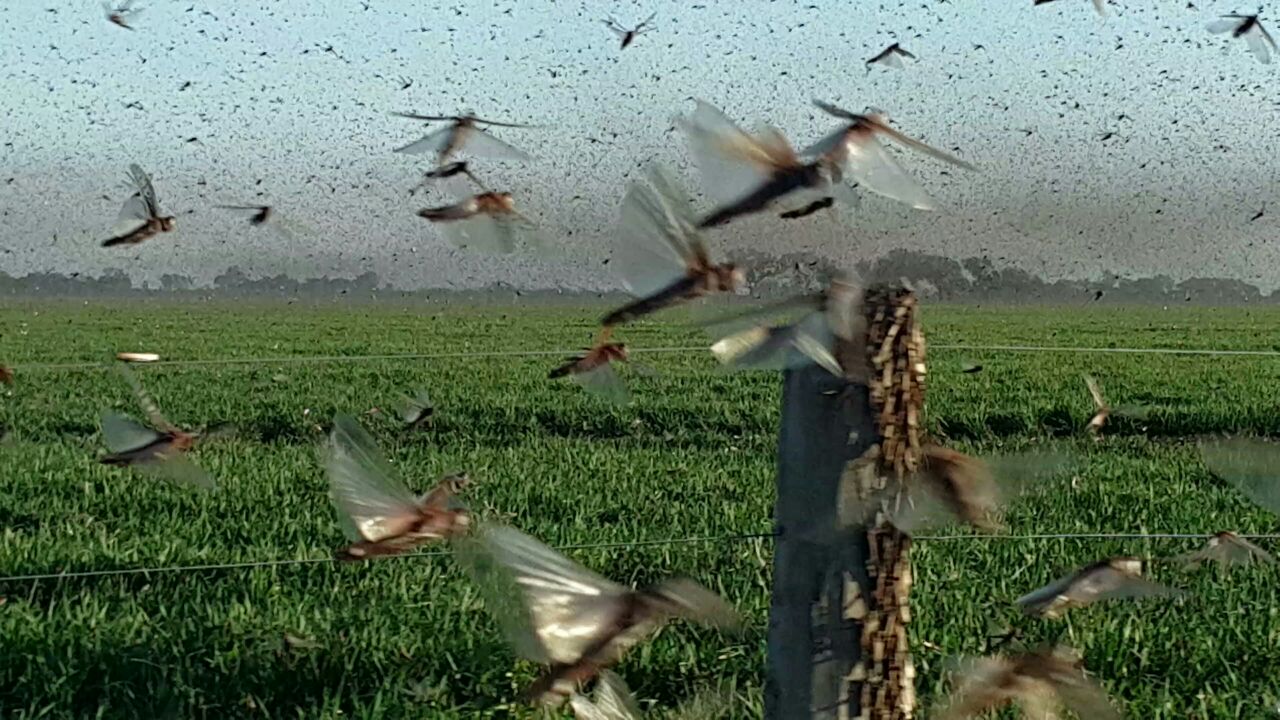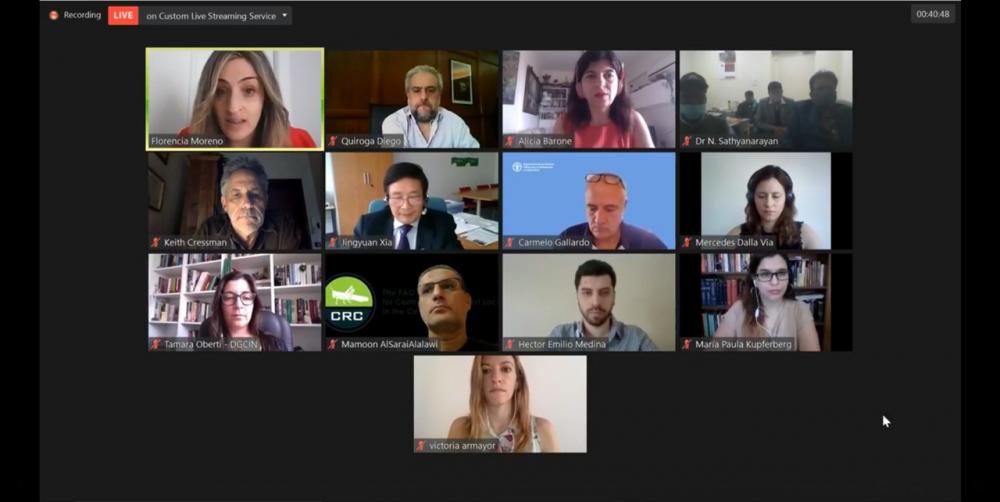Knowledge and experiences related to the management of the locust pest were exchanged during a cooperation seminar for Latin America and the Caribbean, Africa and India.

Buenos Aires, 27 November 2020 (IICA). Specialists, technical specialists and officials from Latin America and the Caribbean, Africa and India exchanged knowledge and experiences related to combating the locust pest, which is affecting agricultural production and natural reserves in different regions of the world and jeopardizing global food security.
Participants at the Third Cooperation Seminar “Locusts: Management and Prospects for Cooperation in Latin America, the Caribbean, Africa and India”, agreed that, because locusts are a migratory and transboundary species, international commitments and broad cooperation between different countries will be necessary to overcome the pest. These efforts should include the development of early warning systems, continuous monitoring and the promotion of innovative solutions.
The activity provided an opportunity to share information on the different locust species that exist in each region, their current situation and prospects; the action plans carried out by cooperation organizations and local entities; as well as institutional coordination and the technological innovations that are being applied.
This was the third edition of a series of regional seminars carried out in 2020, which was designated by the United Nations as the International Year of Plant Health.
The series of conferences were organized by the Ministry of Foreign Affairs, International Trade and Worship, the Ministry of Agriculture, Livestock and Fisheries, and the National Service of Agrifood Health and Quality (SENASA) of Argentina, together with the Inter-American Institute for Cooperation on Agriculture (IICA), the Inter-American Group for Coordination on Plant Protection (GICSV) and the Plant Health Committee of the Southern Cone (COSAVE).
The Food and Agriculture Organization of the United Nations (FAO) also participated on this occasion.
In addition to experts from Latin America and the Caribbean, whose countries were represented at previous seminars, officials from India, Ethiopia, Eritrea and Kenya, among other African countries, also participated, describing the actions that have been carried out in their countries in recent years as well as the current scenario.
“Through international cooperation, we seek to achieve sustainable and inclusive development for people around the world. In this very peculiar year, we are proposing creative solutions to the challenges we have been facing”, stated Minister Alicia Barone on behalf of the General Directorate of International Cooperation of the Ministry of Foreign Affairs of Argentina, when describing the purpose of the activity.
Hector Medina of SENASA explained that four different locust species are present in Latin America and the Caribbean, but the greatest source of concern is the resurgence of the South American locust. “Argentina, Bolivia and Paraguay are facing a dangerous situation and have declared phytosanitary emergencies. The pest has spread in 2020, posing a threat for Brazil and Uruguay as well. Although successful control strategies have been implemented, this was and is still a complex situation”, remarked Medina.
On the other hand, Jingyuan Xia, Director of FAO’s Plant Production and Protection Division, stated that locusts represent one of the most difficult challenges faced by humanity, describing the pest as a natural disaster comparable to floods and droughts.

Keith Cressman, FAO’s Senior Locust Forecasting Officer, referred to the desert locust, a species that affects Asia, Africa and the Middle East. “At present, it is the most dangerous migratory pest, given the fact that it now covers 20% of the Earth’s surface. At least 29 countries have to deal with this locust year round, but the pest could spread to all four cardinal points and invade 25 other countries if it is spurred on by three environmental conditions, which are rain, warm temperatures and wind. More than 50 countries could be impacted, which would affect the livelihoods of thousands of communities”, explained Cressman.
“Knowledge is our main tool for combating the locust pest”, cautioned Caio Rocha, IICA Representative in Argentina. He also called for permanent integration and the sharing of experiences and technologies.
Speaking on behalf of the Ministry of Agriculture, Livestock and Fisheries, Santiago Bonifacio noted that technologies will play a decisive role in the success of actions undertaken to control the pest.
Lastly, minister Juan Ignacio Roccatagliata of the Ministry of Foreign Affairs of Argentina, underscored the need to simultaneously develop short- and long-term strategies and to foster cooperation between State and private stakeholders.
More information:
Lourdes Fonalleras, International Specialist in Agricultural Health and Food Safety at IICA.
lourdes.fonalleras@iica.int











